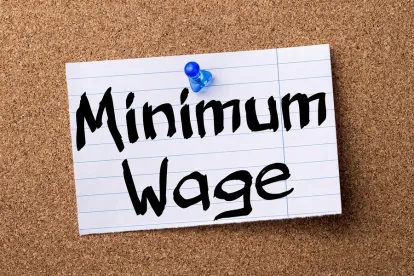The Court of Appeals for the 11th Circuit held earlier this week that a plaintiff who received at least the minimum wage and any overtime pay owed could not sue under the FLSA for withheld tips.
The federal minimum wage is $7.25 per hour. Section 203(m) of the FLSA permits employers to pay tipped employees $2.13 per hour plus an additional amount in tips that brings the total hourly wage up to $7.25. To take advantage of this “tip credit,” however, the FLSA requires that all tips received by the employee must be retained by the employee (subject to valid tip-pooling arrangements).
In May 2011, the U.S. Department of Labor issued a new regulation (29 C.F.R. § 531.52) that declared that “[t]ips are the property of the employee whether or not the employer has taken a tip credit under [§ 203(m)] of the FLSA.”
The plaintiffs in the 11th Circuit case—Malivuk v., Ameripark, LLC, No. 16-16310—received both wages and tips. They sued, alleging that their employer had violated the FLSA by appropriating their tips. The district court dismissed their claims, on the ground that § 216(b) of the FLSA provides a private cause of action only for failure to pay minimum wage or overtime pay—and the plaintiffs had not alleged any such failure. The plaintiffs’ claims rested solely on § 531.52 of the FLSA regulations, and not on any statutory language within the FLSA itself. (FLSA § 203(m) speaks only to whether an employer may take a tip credit; it does not itself contain a private right of action.)
So can a plaintiff sue for violation of an FLSA regulation when the statute itself provides no cause of action? No. As the DOL conceded in its amicus brief in Malivuk, an employee can bring a private lawsuit against an employer only when the FLSA itself authorizes such an action. And the DOL agreed with the defendant that there is no statutory authority for a private suit by employees who claim only that their tips were withheld, but who do not also allege that they received less than the minimum wage (before tips) or that they were shortchanged on overtime pay. The 11th Circuit affirmed the dismissal of the lawsuit.
Employers with tipped employees need to remain mindful of state laws that may provide a cause of action for withheld gratuities.



 />i
/>i

